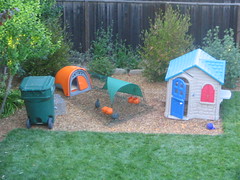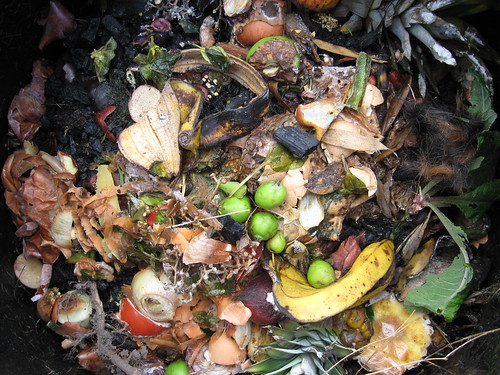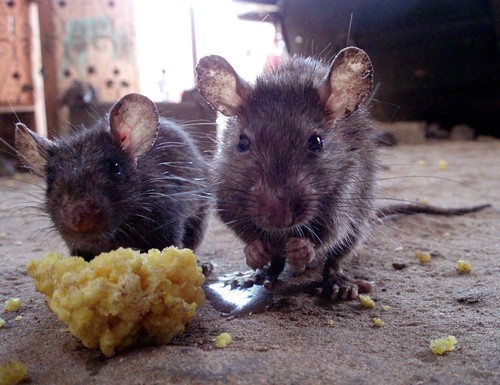An article appeared over on the
GOOD blog this week proclaiming
backyard bunnies to be the next urban chickens, and it seems this proclamation has some resonance amongst the sustainability crowd, as it was
tweeted and
retweeted quite a bit over the last few days.
Let me set this straight. Backyard Bunnies are
NOT the next Urban Chickens for one simple reason: you don't kill your chicken at harvest time.
Urban chickens will provide a regular supply of protein-packed eggs for at least three years (sometimes much longer) and there's no blood on your hands. Raising chickens means entering a nurturing relationship with an animal that rewards you sustainably and over time.
Bunnies, on the other hand, only give up their protein once: and that's after the slaughter. And I'm not so sure mainstream America are ready to have a bunch of slaughter operations going on in the suburbs. (Heck, they're having a hard enough time with the
chicken poop).
Sure, there are many reasons why rabbits are, indeed a good source of meat, as the
GOOD article details, but let's not get ahead of ourselves.
If you want to know how difficult it is to kill a bunny, I recommend reading
Farm City: The Education of an Urban Farmer
by Novella Carpenter as she goes into great detail what it's like to move from raising fowl for eggs to fowl for slaughter to bunnies for meat.
Of course, many of you may already be thinking about raising your chooks for eggs and meat and so the whole slaughter bit doesn't really bother you. I, on the other hand, see urban chickens as bug- and weed-eating sources of chicken manure and eggs. The thought of raising chickens for meat is beyond me, and I prefer to stay one step removed from that process for a good while now.
What about you? Are you keeping your chickens for eggs or for meat or for both? How did you come to that decision?
Photo credit: Justin and Elise on Flickr




















